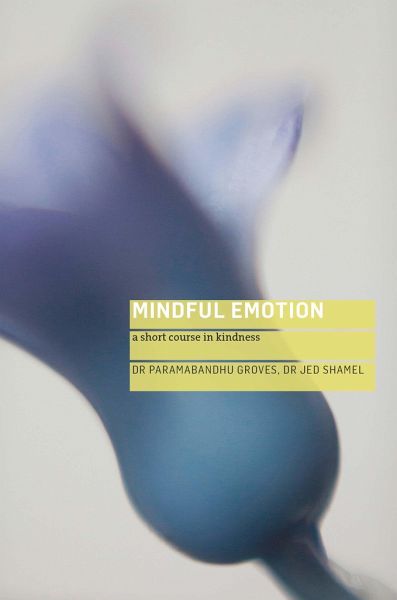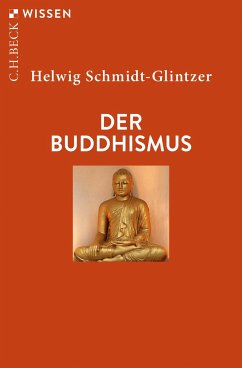
Mindful Emotion
A Short Course in Kindness
Versandkostenfrei!
Versandfertig in über 4 Wochen
15,99 €
inkl. MwSt.
Weitere Ausgaben:

PAYBACK Punkte
8 °P sammeln!
Buy this book, read it, practise with it. It's a wonderfully welcome addition to the body of work around mindfulness and compassion. It's engaging; down-to-earth but uplifting; and very much to the point. The authors come across as kindly but never sentimental and their book extends the conversation around mindfulness - and its practice - into further, and much needed, domains. I'll certainly be recommending it to all those who have attended my mindfulness classes. Michael Chaskalson, author of Mindfulness in Eight Weeks Mindful Emotion: A Short Course in Kindness is a stimulating guide and tr...
Buy this book, read it, practise with it. It's a wonderfully welcome addition to the body of work around mindfulness and compassion. It's engaging; down-to-earth but uplifting; and very much to the point. The authors come across as kindly but never sentimental and their book extends the conversation around mindfulness - and its practice - into further, and much needed, domains. I'll certainly be recommending it to all those who have attended my mindfulness classes. Michael Chaskalson, author of Mindfulness in Eight Weeks Mindful Emotion: A Short Course in Kindness is a stimulating guide and training program that uses the analogy of cultivating a garden that results in the finest flowers and fruits to illustrate the process of cultivating kindness toward others. A variety of secular-based mindfulness meditation instructions and thoughtful exercises support this process of creating a garden of kindness, which is what our world so badly needs right now. Bhikshuni Thubten Chodron, author of Good Karma: How to Create the Causes of Happiness and Avoid the Causes of Suffering The last 20 years has seen research showing us that what motivates us also patterns our minds and bodies. While modern societies encourage self-focused competitiveness, ancient wisdoms point to the importance of caring, helping, supporting, kindness and compassion for self and others as the true path to happiness and well-being. This deeply informative book brings together secular science, ancient wisdoms and psychotherapeutic insights, in a series of steps and practices to cultivate kindness to self and others and thereby reap its benefits. Accessible and practical, this book will be of great benefit to many. Professor Paul Gilbert, PhD, FBPsS, OBE, author of The Compassionate Mind With the problems we face in today's world, kindness is more important than ever. In Mindful Emotion, the authors have produced a thorough and pragmatic guide to bringing mindfulness and kindness into our lives. It is an excellent book that I will be recommending to colleagues, clients, and friends. Russell Kolts, Ph.D., Professor of Psychology at Eastern Washington University and author of CFT Made Simple: A Clinician's Guide to Practicing Compassion-Focused Therapy The benefits of mindfulness are so much greater when they include a focus on kindness and compassion, both for ourselves and others. This book is a wonderful journey through the art and practice of mindful kindness - or as I like to call it, Kindfulness. Dr Mark Williamson, Director of Action for Happiness This book is all about kindness behaviour training (KBT). The authors have drawn on their clinical experience as well as Buddhism to develop a practical course in cultivating kindness, intended to complement and augment other mindfulness-based approaches. They are now presenting this training in an eight-week course book. Amid the recent explosion of secular mindfulness, their aim is to reemphasize the importance of the heart, introducing the reader to a variety of ways of approaching kindness-based meditation, as well as to how to put kindness into practice in daily life. A range of psychological theories and areas of research inform the KBT approach, primarily findings from cognitive neuroscience, as well as evolutionary and positive psychology literatures. It also uses a range of exercises found to be helpful in Eastern traditions, such as Buddhism. The KBT exercises have been isolated from their religious or spiritual origins and are used on a secular basis. The book will act as a companion, walking the reader through each week of the course offering guidance, reflections, and outlining the exercises in a concise user-friendly style. Worksheets and homework tasks to be completed into the book for each week will make the book interactive and accessible.













